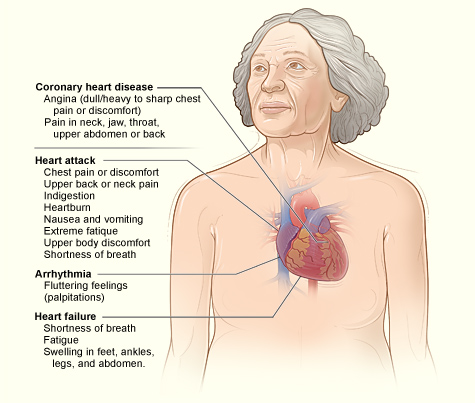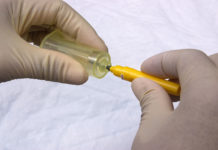
Higher proportion of male hormones poses great heart disease risk in post menopausal women
Post menopausal women, have a higher blood level of a male hormone (testosterone) as compared to the female hormone estrogen. This is associated with a higher risk of heart disease later in life, according to a research published in the Journal of the American College of Cardiology.
The risk for heart diseases is much lower in women than men until women reach the age of 50 years of age. The risk, however rises dramatically after menopause.
The study was undertaken to look at the relationship between sex hormones and cardiovascular events in post-menopausal women.

Researchers analysed 2834 post-menopausal women free of heart diseases at the start of study from the Multi-Ethnic Study of Atherosclerosis (MESA) to evaluate the association of sex hormone levels with heart diseases. Risks of coronary heart disease and heart failure analysed were over a 12-year follow-up period.
Sex hormone concentrations were measured using fasting blood samples. Every 9-12 months, participants or their close family members were interviewed over the telephone regarding hospital admissions, outpatient heart disease diagnoses, procedures, and death.
Higher total testosterone was associated with an increased risk for coronary heart disease and total heart diseases (defined as coronary disease plus stroke events).
Hospital records were obtained for hospitalised patients in 98 percent of reported cases of heart disease events and medical record-based information was obtained for 95 percent of outpatient encounters.
A higher testosterone to estradiol ratio was associated with an increased risk for heart disease including coronary heart disease and heart failure.
Higher total testosterone was associated with an increased risk for coronary heart disease and total heart diseases (defined as coronary disease plus stroke events). Higher estradiol levels were associated with a lower risk of coronary heart disease.
Additionally, the risk for heart disease and coronary heart disease were approximately similar across the range of total testosterone, testosterone to estradiol ratio and estradiol levels.
“Although sex hormone levels may be linked to future cardiovascular events, it is unclear what the best intervention is to modify sex hormone levels for risk reduction,” said Erin D. Michos, MD, MHS, associate professor of medicine at the Johns Hopkins University School of Medicine and senior author on the study. “However, a sex hormone profile higher in male hormones may identify a woman at higher risk for cardiovascular disease who may benefit from other risk reduction strategies.”
In an accompanying editorial comment, Virginia M. Miller, PhD professor of physiology and surgery and director of the Mayo Clinic Women’s Health Research Center said, “Defining cardiovascular risk for women should account for individualized profiles of genetic variants in enzymes associated with steroid metabolism, uptake and receptors in conjunction with risk for specific cardiovascular pathologies. This approach is precision medicine.”













